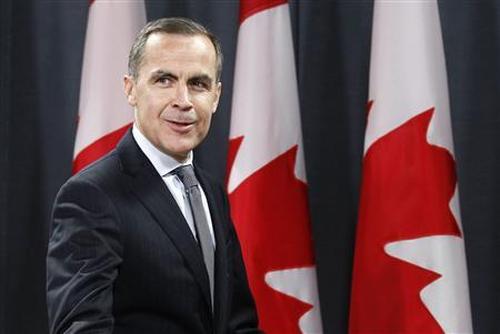Photographs: Reuters Satyajit Das
Changes in the economic environment have altered the dynamics of stock markets. In the recent past, they have started defying investment fundamentals.
In 2012, the MSCI All-Country World Index of equities increased 16.9 per cent including dividends. The US S&P 500 Index increased 13 per cent, the most since 2009.
While the German economy slowed, recording only marginal growth, the DAX rose 29 per cent. The French economy performed even worse but the CAC40 rose 15 per cent advance.
Despite the fact that Italy faced serious economic problems, the stock market rose 8 per cent. While Spain tottered on the edge of needing a bailout, stocks fell a modest 5 per cent.
The phenomenon extended to emerging markets. While India's economy stagnated, the Sensex increased 26 per cent. The South Korean and Brazilian stock markets both rose, despite rapidly slowing growth.
Perhaps most interestingly, Argentina's stock market grew 17 per cent, despite its dysfunctional economy.
Amusingly, some of the best performing sectors were industries that have underperformed badly in recent years.
US banks and financial institution shares increased a record 25 per cent, despite weak revenues, increased regulation and continued revelations of dubious practices. It seems that the best strategy is to buy the previous year's underperformers.
Changes in the economic environment have altered the dynamics of stock markets.
...
Why stock markets are gaining while economies struggle
Image: A striking feature of recent corporate history has been low and poor quality revenue growth.Photographs: Tony Gentile/Reuters
Macro-economic factors, slowing growth and especially policy measures such as the global regime of zero-interest rates and quantitative easing, colours most markets, driving the valuation and performance of firms.
Profit margins and cash flow improve, perversely, in a period of low growth. Initially, companies cut costs improving profitability. As revenues are stagnant, companies have no need to invest in expanding capacity or working capital, releasing cash flow.
Reduction in depreciation charges and the ability to use cash flow to reduce debt reduces interest expenses. In the present cycle, sharp decreases in interest rates, though not necessarily interest margins, have also improved profit margins.
But plant must eventually be replaced. Cost cutting, productivity improvements and restructuring cannot be repeated endlessly.
In the long run, increases in profitability require revenue growth. But lower growth translates into lower demand slowing revenue increases.
Lower demand and over capacity in many industries have reduced corporate pricing power, decreasing profitability.
A striking feature of recent corporate history has been low and poor quality revenue growth. Earnings have increased more than revenues. Where companies or sectors experience revenue growth, the causes are interesting.
Beneficiaries of government spending targeted at increasing demand have benefited. Artificially, low interest costs have encouraged substitution of technology and mechanised equipment for human resources, boosting revenues of technology and industrial equipment manufacturers.
...
Why stock markets are gaining while economies struggle
Image: Mark Carney, the newly appointed Bank of England governor.Photographs: Chris Wattie/Reuters
Commodity producers' revenues have benefited from rises in volumes (driven by emerging market demand) and higher prices.
Some firms have increased revenue by cannibalising competitors and adjacent industries. RIM and Nokia have lost market share to iPhones. Sony's Walkman and other makers of mobile entertainment devices have lost market share to iPods.
Makers of personal digital assistants - Palm Pilots and Handsprings - were superseded by smartphones. Tablets have increased market share at the expense of desktop and notebook computers. Picking the winners and losers in this game is difficult.
The build-up of cash on corporate balance sheets is frequently cited as a sign of corporate health.
In the US, since 2008 companies have been net lenders rather than borrowers, they now hold around $1 trillion in cash. Japanese companies hold liquid assets of $2.8 trillion. European companies also hold large cash balances.
Mark Carney, the newly appointed Bank of England governor, referred to the $300 billion of cash held by companies in his native Canada as "dead money".
The high cash balances reflect uncertainty about future financing conditions and the willingness of banks to lend. But it primarily reflects the lack of investment opportunities.
Cash surpluses affect stock prices and returns. Many companies have returned capital, through stock buybacks and higher or special dividends.
...
Why stock markets are gaining while economies struggle
Image: Low and declining returns over time has undermined demand for equities.Photographs: Toru Hanai/Reuters
In the US, fear of tax changes has also been a factor. But investors are now faced with the problem of where to deploy the cash.
Other companies have used surplus cash to purchase competitors, businesses or assets. Given the indifferent results of many mergers and acquisitions, it is unclear that this will benefit anyone other than shareholders of the acquired company and investment bankers.
Equity valuations increasingly also reflect changes in the market environment. Changing demographics affect stocks. Investors approaching retirement may switch to more defensive asset and seek steady income, favouring bonds and cash.
Low and declining returns over time has also undermined demand for equities. The reduction is evident in outflows from equity funds into other assets.
Low interest rates have driven stock prices. Dividend-paying stocks have benefited from the attention of investors seeking income.
With limited policy options and central bank desire to boost asset prices to protect financial institutions and increase consumption, further intervention, including direct purchases of stocks, cannot be ruled out.
The Bank of Japan has purchased risky assets, including corporate bonds and stocks. During the 1997-1998 Asian monetary crisis, the Hong Kong Monetary Authority purchased stocks.
...
Why stock markets are gaining while economies struggle
Image: Raj Rajaratnam of Galleon Group. Revelations of insider trading has undermined retail investors' investment interest.Photographs: Shannon Stapleton/Reuters
Algorithmic trading now dominates stock markets, making up between 30 and 70 per cent of all activities. While necessary to facilitate execution, computerised trading may increase volatility. Holding periods now average a few seconds.
Average investment periods for traditional investors have fallen from seven years in 1940, five years in 1960s, two years in the 1980s to seven months currently. Short-term trading feeds volatility and may distort values.
But, despite the increase in computer-driven trading, overall trading volumes have declined 15 to 30 per cent. The reduced liquidity affects stock valuations.
Revelations of insider trading and expert networks designed to secure preferential access to tips has emerged, undermining investment interest, especially from retail investors.
These changes make valuations based on history more difficult.
The American comedian Will Rogers provided sage advice about investing: "Don't gamb#8804 take all your savings and buy some good stock and hold it till it goes up, then sell it. If it don't go up, don't buy it".
Fundamental changes in the drivers of stocks and trading in equities now make Rogers' views on investing success more important than ever.
The writer is a former banker and author of Extreme Money and Traders Guns & Money







article